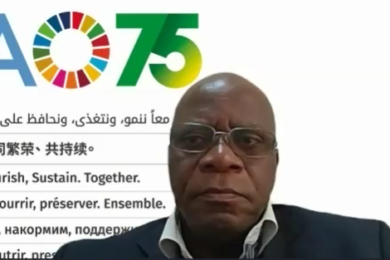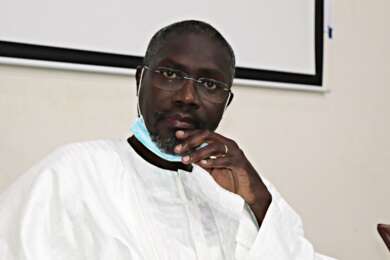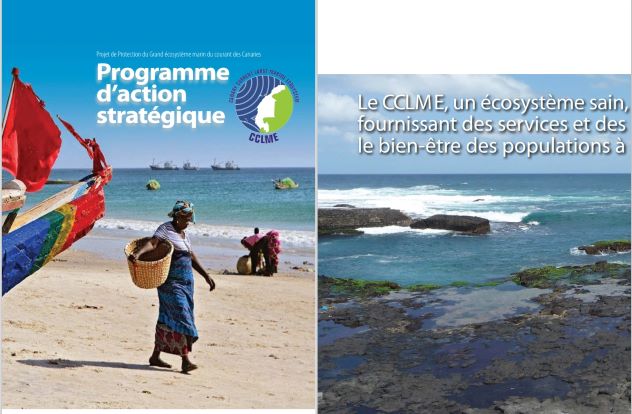The virtual workshop to launch the activities of the project “Towards the Sustainable Management of the Canary Current Large Marine Ecosystem (CCLME) – initial support to the implementation of the Strategic Action Program (SAP)” started on 4 November and will end on 5 November 2021.
In his opening speech, the Coordinator of the FAO Sub-Regional Office in West Africa stated that: “This virtual workshop is organized to officially launch the activities of this second CCLME project which is already 20 months behind schedule mainly due to the Covid-19 pandemic.
Dr Gouantoueu Robert GUEI, said that the aim is to allow “actors and partners to have a good knowledge of the project activities, as well as information sharing and exchanges to help define the institutional roles and responsibilities of countries and partners.”
The Coordinator of the FAO Sub-Regional Office for West Africa and FAO Representative in Senegal said: “Annual fish production varies between 2 and 3 million tons, which is the highest fish production of all African Large Marine Ecosystems (LMEs) and the total value of catches exceeds 3 billion dollars per year.”
During the two days, the participants will work on: validation of the first annual plan of activities of the project and its adoption by the countries as well as the modalities of their implementation by each actor concerned; and to revitalize the framework of collaboration and coordination between the partners in the implementation of the CCLME project.

For his part, the Secretary of the Fishery Committee for the Eastern Central Atlantic (CECAF) at the FAO Regional Office for Africa underlined the importance of the project. “CCLME brings a lot to the region and its communities,” said Dr Ndiaga GUEYE, adding that “It is not easy to manage such a vast landscape and seascape as CCLME, which covers seven countries – we are all aware that the impact of the project is much wider and deeper than its geography.
The CECAF Secretary informs that the challenges ahead [for] [fisheries managers, scientists and fisheries professionals] will require a significant change in the way “we approach our work, new ways of doing things and, I hope, even closer collaboration between all parties involved”.
He advises to “take into account the voices of all parties as we move forward”.
Understanding the CCLME
The Canary Current Large Marine Ecosystem (CCLME) is one of the most productive and biologically diverse large marine ecosystems in the world. It supports a wide range of marine and coastal habitats, including wetlands, estuaries, seagrass beds, mangroves and coral communities that are home to a large number of endemic and migratory species.
The CCLME provides vital food and economic resources to coastal populations bordering the GEM, as well as to much of West Africa.
Aliou DIALLO


